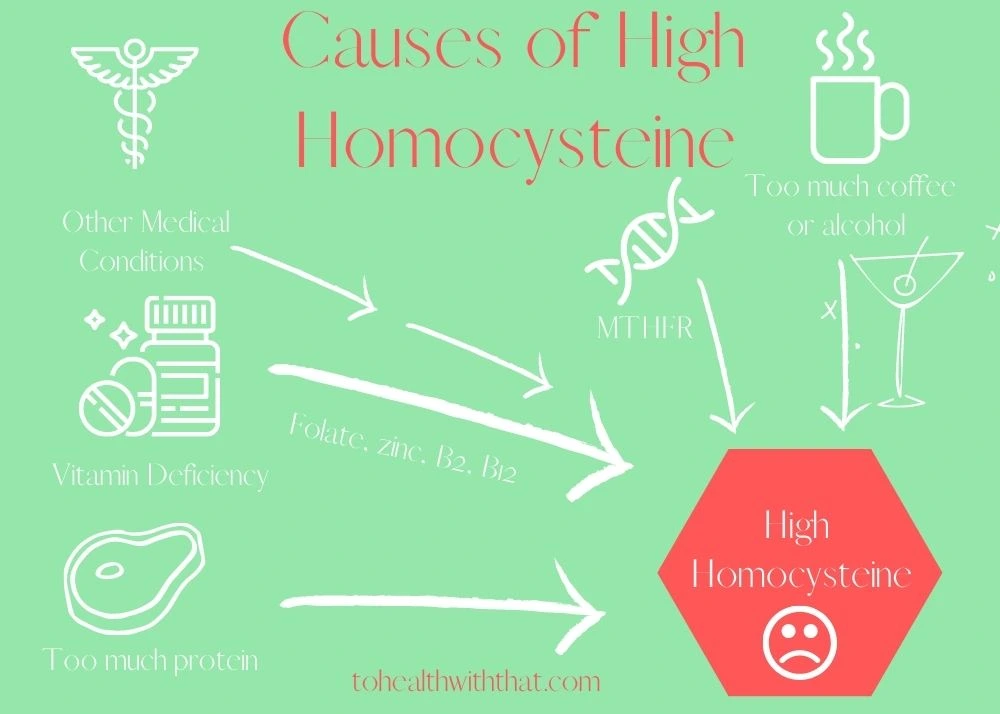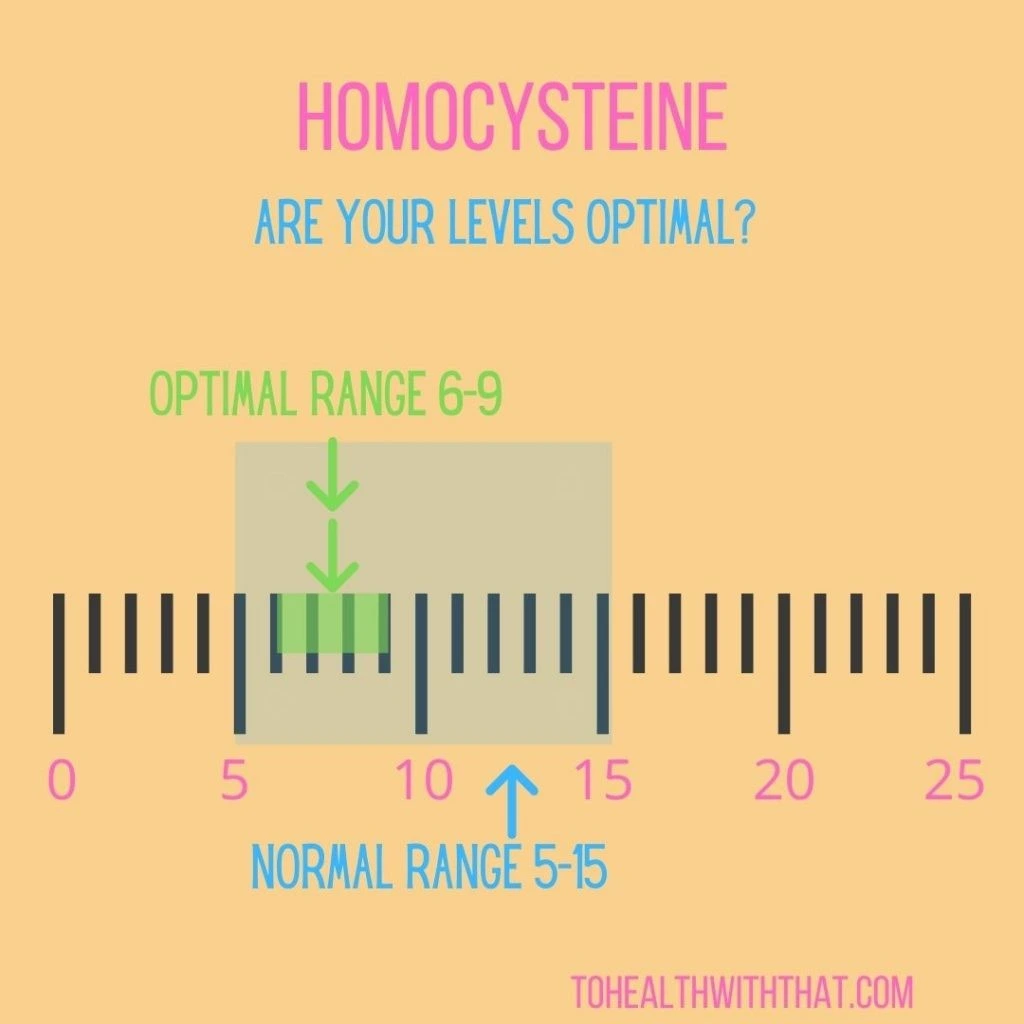As with everything to do with MTHFR, balancing your methylation and boosting your B vitamins, especially B2, folate or 5-LMTHF, and B12, is the first step. Balance your methylation! There are some other things you can look into as well.

MTHFR Isn’t The Only Cause of High Homocysteine
Of course, our focus is MTHFR, but high homocysteine has other causes as well and the sad truth is, you can have fleas and ticks on the same dog. That is one of my favorite Texas expressions. What I mean by that is that just because you have MTHFR, doesn’t mean you don’t have to also watch out for other causes of high homocysteine. It’s important to manage those too. Other Causes of high homocystein (or hyperhomocysteinemia) include:
- Poor diet
- Poor lifestyle
- Smoking
- Diabetes
- Rheumatoid Arthritis
- Thyroid imbalance
- Chronic inflammatory diseases
- Celiac disease
- Crohn’s disease
- Long-term use of corticosteroids
- Prescription medications
- methotrexate (because it lowers folate)
- metformin (long term use because it interferes with B12 absorption)
- hydrochlorothyazide
- Fibrate type cholesterol-lowering medications
- Levodopa
- Anti-epileptic drugs (long-term use)
- Possibly nicotinic acid or niacin, but research is very conflicted.

If you have one of these underlying conditions or are taking a medication known to elevate homocysteine, then working on that condition or talking with your physician about the medication can be a great place to start. Outside of that, let’s talk about useful steps.
The MTHFR Plan to Lower Homocysteine To Optimal
- Balance your methylation – I’ve said it already, but the first step is always boosting your methylation cycle because this is where we tend to stall out with MTHFR. This means following the To Health With That! Plan. Eliminate folic acid, add a methylation-friendly B complex, then add 5-LMTHF, or folinic acid, or whatever workaround you are using if you don’t tolerate folate. If you aren’t familiar with the plan you can start to walk through it here.
- Limit your protein intake – The more protein (and consequently methionine) you take in, the more homocysteine your body makes. There’s a full article about the methionine and homocysteine link here.
- Quit smoking – As though you needed one more reason why smoking is bad for your health. But yes, smoking raises your homocysteine levels.
- Take a look at your alcohol intake – alcohol blocks folate absorption, and so increased drinking can raise your homocysteine levels. This is probably mitigated by extra folate intake, but possibly not.
- Balance your coffee intake – As much as it pains me, too much coffee has consequences and high homocysteine is one of them.
- Zinc – zinc is a cofactor in some of the enzymes involved in the recycling of homocysteine to methionine, and so zinc deficiency can increase homocysteine levels while zinc supplementation can help to improve beneficial conversion.
- NAC – NAC, or N-acetyl cysteine, has been shown to lower homocysteine levels as well as folate supplementation in studies.
- Fish oils – in a magical synergy, fish oils + B vitamins work better together than they do apart.
- Make sure there aren’t other underlying causes – If you’re doing everything right and your homocysteine still isn’t where you want it to be, it matters to talk to your doctor about other underlying causes. If you’re living the perfect lifestyle, but you still have a low thyroid, then fixing your thyroid is probably the only thing to bring your levels back to balance.

Don’t forget that every little step you take towards getting healthy, counts. They all add together to contribute to your state of health, today. So every little step you take in the right direction, matters. Don’t get discouraged if things don’t move right away, just keep trying.
MTHFR is a common genetic mutation that can contribute to anxiety, depression, fatigue, chronic pain, infertility, and more serious conditions like breast implant illness, heart attack, stroke, chronic fatigue syndrome, and some types of cancer. If you know or suspect you have an MTHFR variant, schedule a free 15-minute meet-and-greet appointment with MTHFR expert Dr. Amy today.
Book Your Appointment
